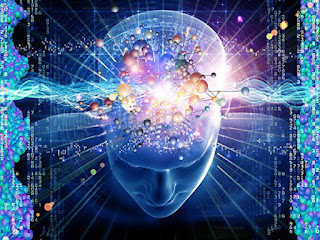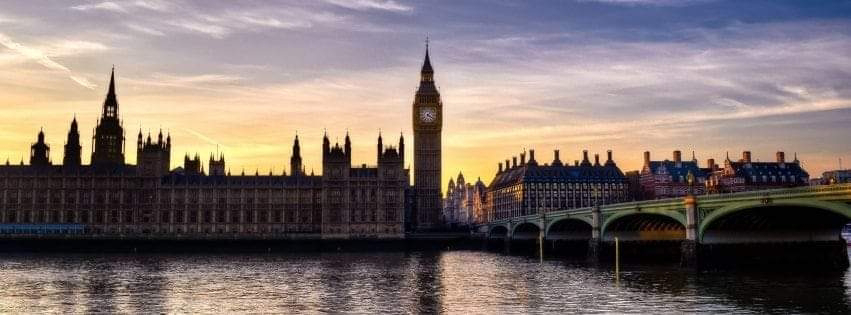 |
| Side view of Westminster Abbey |
Now that it's been over a week and I have decompressed and somewhat rested from my trip to London, I want to take a moment on what I really think about London.
As my dad said before my trip, "Once you've been to a big city, you have seen them all." To a degree, that's true but this is London. How similar (or different) can it be? And to my (un)surprise, he was somewhat correct. I have been to many cities, Hong Kong being one of the largest. London by far has more people than Hong Kong but London is spread out, where as Hong Kong folks are packed in like sardines. And there are a lot of similarities between London and Hong Kong which I will note later in the blog.
One of the things I liked about London are the buildings. Being in engineering, I often marvel at the old buildings in some of the older cities, not just in London but also cities in the United States. I often think about what it really took to design the buildings, build the buildings, the cost, the time, the labor. It took a very long time considering the technology they had back then. And to this day, a lot of these older buildings still stand in London. There are a lot of new buildings, which are just as impressive, like The Gherkin and The Shard.
Another thing that I like is that there is a pub on almost every corner of London. At least there were a few in each district/neighborhood. They all pretty much have the same items on their menu: fish & chips, sausage/bangers & mash, some type of burger, maybe the Ploughman's lunch. What I like most at the pub is the house beer. It may be from a local brewery but it is usually a lager or light beer and oh my, it's oh so good. There was one pub that didn't have a light beer, so I opt for a very light IPA, which was still pretty strong to my taste. Almost every beer comes in a pint, so it's actually a bit much for me, but it is rather good.
Most folks say English food is not so good. And although I don't know if I had any actual English food, the food that I ate were alright. I think my favorite is the fish & chips. The first evening, my friend and I went to a local chippy shop and I was like, wow, the fish was so fresh. The chips (fried potatoes) were alright and I usually love potato anything. I learned that that is how the English serve them with the fish. This particular chippy also had other side items, which I could have ordered instead of the chips, but I thought I want the authentic dish. And I also learned that fish & chips were not originally from England but were introduced by Portuguese Jewish from a long time ago.

Another thing that I ate was sausage rolls. This was actually bought from the supermarket (grocery store). It was on sale at Waitrose, so my friend and I bought a pack to try. Those were good, although I don't know if they were the real thing or if this was considered good to the English people. (Not pictured.) I also tried Anglo-Indian food, which I thought might taste better than the U.S. version, but I was thoroughly disappointed that it was rather sweet than spicy. I thought maybe I ordered the wrong things.
I did also bought some take-away from a local Chinese restaurant that served roast duck and pork belly, and I was like, eh, this is alright. It taste just like the U.S. versions. It was good, though, to have a taste of something familiar.

The Ploughman's lunch I had at a pub near Trafalgar Square was amazing. I didn't know that something so simple can be so good. It had homemade bread, cheese, meats, a beef roll and Scotch eggs. I was really wanting to try the Scotch eggs and those were great. And of course the beer was good.
Another thing I tried is a Full English Breakfast (not pictured). I think it might have been better if I went to a restaurant but it was good as a take-away. The baked beans were a little strange to have for breakfast (taste was fine), and having tomatoes and mushroom was a bit strange too. But the rashers, sausage, and eggs were good.
Since I'm on the topic of food (and other cultural differences), I would say that even though I felt the price was reasonable, the portion was a bit smaller compared to the United States. I think there's been a few meals where I could get two meals out of it, but most of the time, I was able to finish the meal. Even when you buy a bottle of soda/soft drink, it is usually about 375 ml or 12 oz, where as in the U.S. it's usually a 16 oz bottle. And I believe Europeans don't believe in ice, so don't expect ice to be serve with that water or soda. You can ask for it but the servers will give you a little bit. Most fridges with bottled water or soft drink are not as cold like the U.S., so don't expect icy cold bottled drinks. But I'm actually not too bothered by it because I knew before going Europeans do not have the same love affair for ice as Americans do. It makes sense to me; Europe is a colder place, further up the northern hemisphere, and they do not expect really hot humid temperatures like the U.S. Also, based on my assumptions, using refrigerators at cold temperature could be a contributor to global warming. I'll have to look into that. (Which doesn't explain why Southern Chinese do not use ice; that might be another story for another day.) They use paper straws (although, that is also a trend in the U.S. but not as popular). The fridge in the apartment (or they call it flats instead of apartments) was rather large for a British home, but usually refrigerators in Great Britain are much smaller as they frequent the supermarket more often during the week. I have had to go to a few coffee shops to order iced coffee or iced mocha. Now I don't know if that is cultural accepted in the UK to have cold coffee, but it taste rather similar to the ones I've had in the U.S.
One thing that surprised me is that although I knew most of Europe do not expect a tip, restaurants in the UK are starting to charge a service fee on the bill (we would call it a check in the U.S. instead of the bill). In the UK, they pay a decent wage to their employees, so to see this service charge was surprising but also reflects the changing culture on tipping and service fees, or just making sure they account for any unexpected rise in food and material cost. Not all restaurants charge this fee.
There was one day I went to two museums by myself. Getting there and coming back was rather easy, as I will explain at the end of this blog. I went to the Science Museum first and I thought, meh, I have seen and read about all these technology, so it was nothing new to me. The Natural History Museum was kind of a disappoinment. Again, I felt I knew the history but because many buildings in London did not have air-conditioning (and London was experiencing a heat wave that week), I was burning up. And the further in you go into the building, the hotter it gets. They had fans blowing in many areas of the museums but it only circulating the heat and humidity. So I didn't spend too much time in that museum. Had I known more about the British Museum, I would have gone there instead.
One of the main reasons I went to London was because the MLB has a game playing there for the MLB London Series. My friend is a die-hard Chicago Cubs fan, and she really wanted to go, so I thought I would join her and tour London around the events of the game. The game we went to on Sunday was alright, but not as exciting as I would hope. I think because it was played at 3:10 in the afternoon and it was already a hot, humid day, so many folks there were just hot.
I think overall, I thought it was a good trip, it being my first time in London and in Europe.
But... in many many ways, it was all that I expected. And in many ways, it wasn't as spectacular as I would hope. Here are a few reasons why:
- Hong Kong is almost a copy of London when it comes to transportation. London may have been one of the first cities with a subway/underground train system, but it's system has influenced other cities around the world, including Hong Kong and I felt Hong Kong had made their system better. So, it's no wonder when I first step into the subway in London, it was all too familiar with "minding the gap", the way the Tube system is laid out on the map, and even the type of trains that were used.
- The use of the Oyster card is very similar to Hong Kong's Octopus card.
- Speaking of transportation, both London and Hong Kong uses double-decker buses. I can't say which is better; it's a bus to me.
- Also, both countries drive on the left side of the road. And taxi/cab drivers drive the same way, kind of within sanity and kind of crazy at the same time. You don't know how many times my friend and I have said, "He's just driving around to charge us more money."
- Hong Kong uses British English in writing, but "Chinglish" is its own language in Hong Kong. However, many Hong Kongers do speak English in a somewhat British accent.
- I've been privileged to work with many Brits in my career, some from as far north as Manchester and as far south and west as Gloucestershire. So, for me to interact with the Brits in England was not as crazy as I would thought. I actually understood them, even the boy with a cockney accent who owned the souvenir stand on Westminster bridge. Many were nice and friendly, as they could tell I'm not from around there.
- There are a lot of different types of people in London, so it's fair to say that London is a melting pot of many different people from around the world, much like Hong Kong. I kind of expected that since England has invaded and took over many countries around the world for many hundreds of years. One thing that sort of surprised me is that I didn't really experience real English/British culture. Maybe I have but it wasn't apparent to me.
Because of all the items above, I felt very very comfortable navigating my way around London. I wasn't culture shocked at all and in some ways, I was expecting a culture shock. But I knew too much about British and European culture that nothing was a complete surprise to me. Don't get me wrong, I greatly respect the English culture, but I wasn't as impressed as I would hoped. However, I think I will need to go back again in the future just to explore and may venture outside of London to experience Great Britain in a different way.














.jpg)




